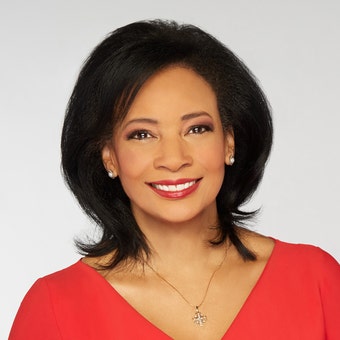Critical race theory resembles Marxist curriculum, Soviet immigrant warns
Constructive Ethnic Studies Group co-founder and registered Democrat Elina Kaplan compares how CRT is similar to Soviet teachings.
The debate over critical race theory is in schools and government, but now it's starting to infiltrate and divide the Christian church.
At a heated school board meeting in Ft. Worth, Texas recently, critical race theory was on trial, but it was God who many speakers used as a witness.
On the one side are those opposed to CRT like Danielle Buck, a parent who said, "I believe in what God says in the Imago Dei, that all of us have intrinsic value regardless of the color of our skin. We have all been created in the image of God."
Then there are pastors like Ryan Price, who support it.
"In the church, we have a saying, keep your hand on the plow, you're plowing hard ground," Price said. "The roots of racism and inequity are deep… more reason to hold on tight and keep at it for the sake of truth, humanity and unity.

The debate over critical race theory is in schools and government, but now it's starting to infiltrate and divide the Christian church. (iStock)
Critical race theory has begun to cause fissures in evangelical circles. In 2019 the Southern Baptist Convention, one of the most conservative Christian denominations, adopted Resolution 9, which accepted some of the tenets of CRT as a "tool to understand how race has and continues to function in society."
But theologian Voddie Baucham, author of the book "Faultlines," said many efforts like this, though well-intentioned, ignore how CRT clashes with Christianity on core issues.
DEROY MURDOCK: CRITICAL RACE THEORY MUTILATES CENTURIES-OLD LEGACY OF INTERRACIAL COOPERATION
"Critical race theory is at odds with Christianity because it takes the problem of racism out of the individual heart and puts it out there somewhere in systems and structures," said Baucham, who is African American.
And he reminded Christians that, "Christ came to redeem us from our sin and our sin is in here, not out there."
Baucham said the Resolution 9 that the SBC voted on was actually a watered-down version of the original which took a much harsher view of CRT. As an example, one section of the original resolution said:
"Whereas, critical race theory and intersectionality are founded upon unbiblical presuppositions descended from Marxist theories and categories and therefore are inherently opposed to the Scriptures as the true center of Christion union…"
LAWSUITS FILED AGAINST CRT IN MINNESOTA ALLEGE IT PROMOTES HARASSMENT, INTOLERANCE
The Final Resolution read:
"Whereas, critical race theory and intersectionality alone are insufficient to diagnose and redress the root causes of the social ills that they identify, which result from sin, yet these analytical tools can aid in evaluating a variety of human experiences…"
In his book, Baucham warns of a looming catastrophe within evangelicalism, as CRT and other social justice movements oftentimes use the language of faith to promote the ideology, like saying slavery is America's original sin.
"So when people start talking about original sin, they're stepping into a theological lane," he said. "And if you're going to talk about original sin, then there has to be an answer to how we're forgiven for that original sin. And the great irony of race theory and anti-racism is that there is no forgiveness there. You just have to perpetually do the work of anti-racism and you never get to a point where that work is finished. There's no forgiveness. There's no salvation because there is no savior."
CLICK HERE TO GET THE FOX NEWS APP
But one of the reasons that Christians are drawn to CRT is because it sounds like the things they believe in. Tom Plumbley, senior minister of First Christian Church in Ft. Worth, told the school board members how he supports CRT and said to keep teaching his grandchildren the truth and "the humanity of all their neighbors."
"It's not about helping them feel bad about being White, but helping them learn ways all of us can someday overcome every evil through truth, humanity and unity," he said.
Baucham said the irony is that both sides of the divide are reading the same Bible, looking for divine guidance for the same human problem.














































